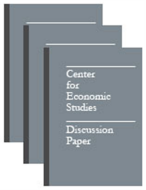Whose Neighborhood Now? Gentrification and Community Life in Low-Income Urban Neighborhoods
Whose Neighborhood Now? Gentrification and Community Life in Low-Income Urban Neighborhoods
Abstract
Gentrification is a process of urban change that has wide-ranging social and political impacts, but previous studies provide divergent findings. Does gentrification leave residents feeling alienated, or does it bolster neighborhood social satisfaction? Politically, does urban change mobilize residents, or leave them disengaged? I assess a national, cross-sectional sample of about 17,500 respondents in lower-income urban neighborhoods, and use a structural equation modeling approach to model six latent variables pertaining to local social environment and political participation. Amongst the full sample, gentrification has a positive association with all six factors. However, this relationship depends upon respondents’ level of income, length of residency, and racial identity. White residents and those with shorter length of residency report higher levels of social cohesion as gentrification increases, but there is no such association amongst racial minority groups and longer-term residents. This finding aligns with a perspective on gentrification as a racialized process, and demonstrates that gentrification-related amenities primarily serve the interests of white residents and newcomers. All groups, however, are more likely to participate in neighborhood politics as gentrification increases, drawing attention to the agency of local residents as they attempt to influence processes of urban change.
Others in Series
Working Paper
Working Paper
Working Paper




